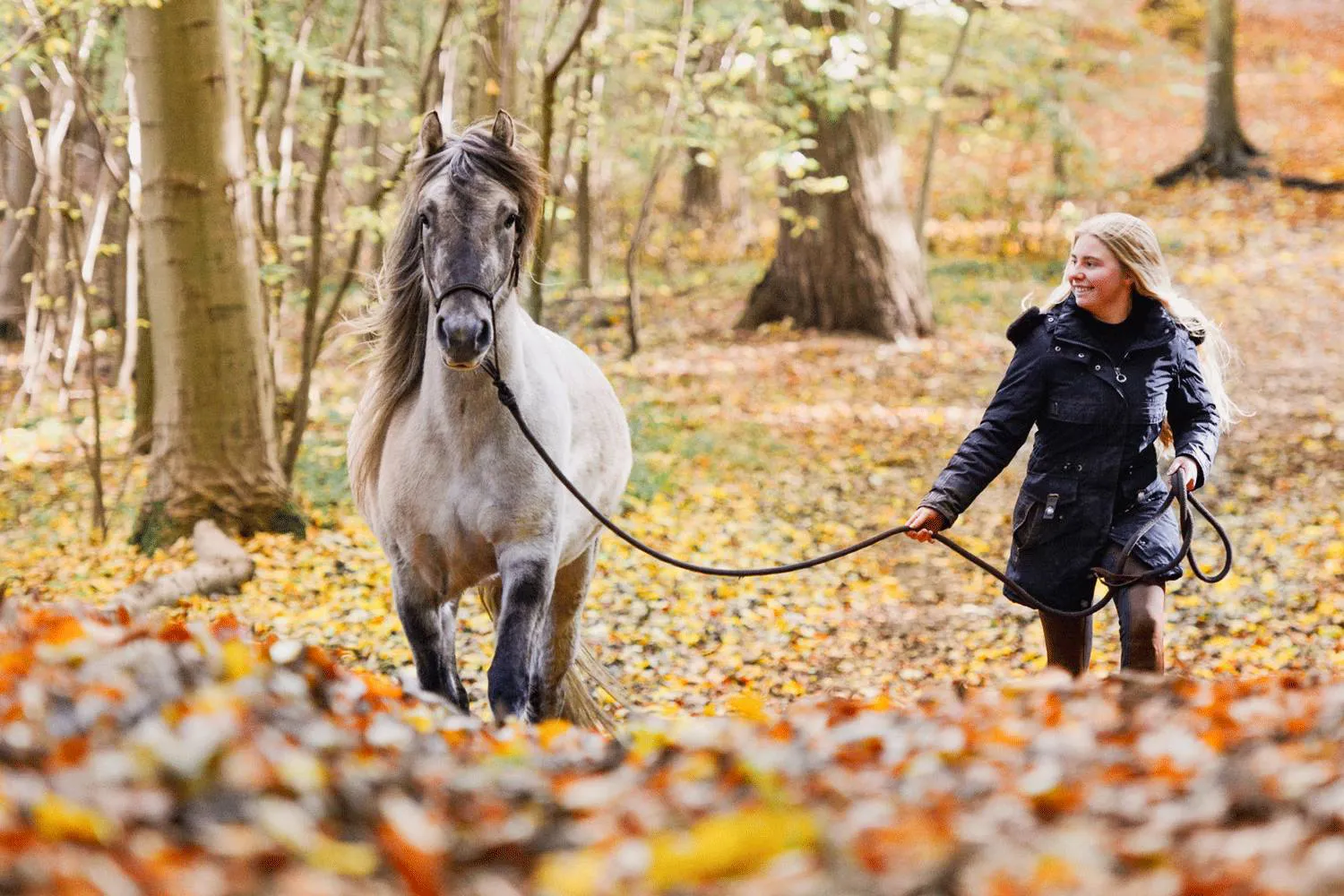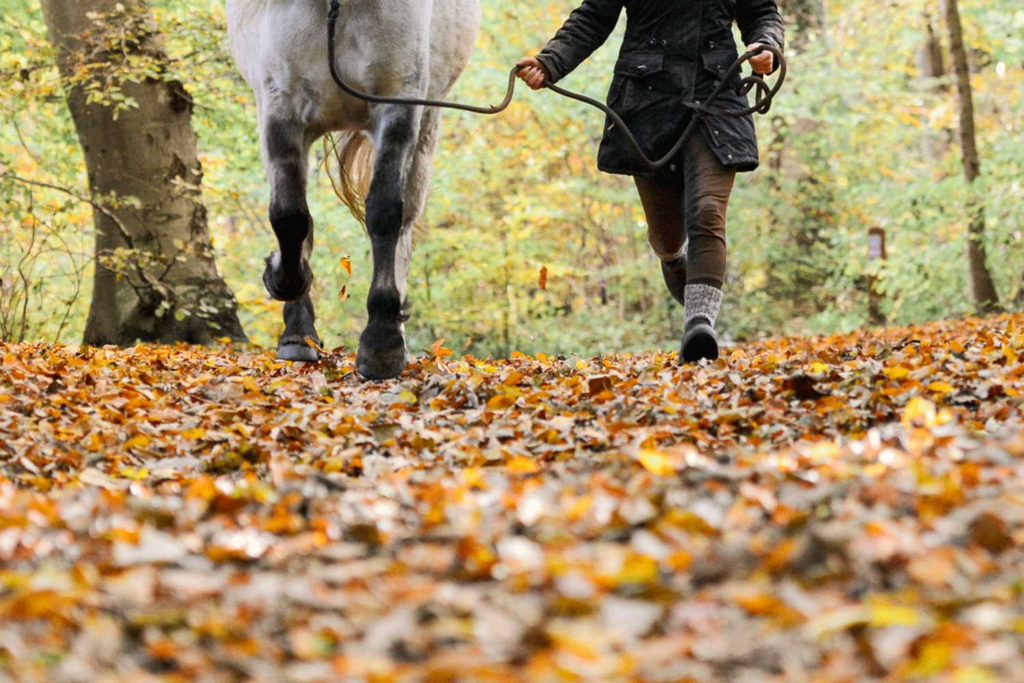Menu

Do you seize control when the opportunity arises? Or do you dare to refrain? For the most of our lives, we're told to take and maintain control. Take control of our lives. Take control of our future. The prevailing message is to seize control, and this extends to our interactions with horses. Take control of your horse. But is that always a wise decision? Here, you can read about Sophie Amalie Dam Holm from Sophies Soultales' thoughts and experiences.
"Not taking control means that you dare to receive a 'no' from your horse. Not taking control means that you dare to be open to something unexpected with or from your horse. Not taking control means that you dare to create space for communication with your horse."
Sophie Amalie Dam Holm
In some cases, it might be good and useful advice, but in other respects, it could also be the advice that puts you in chains and limits you. It could be the advice that prevents you from experiencing something unexpected and beautiful. How can anything unexpected ever happen if you always have control and never surrender to anyone or anything?
In our interaction with horses, we tend to always take control. I'm no saint myself, and I would never try to convince you otherwise. What makes the difference is whether one consciously takes control, or if one unconsciously does so, simply because one can. Sometimes it's necessary to take control, but other times it can also be the biggest relief not to. Instead, to be surprised or to take a break from the controlled life we often lead.
When you're advised to take control of your life, it's not always as easy as it sounds. It's not very tangible, but with a horse? We have ropes we can pull when our horses won't move forward. We have whips we can flick or strike with when our horses don't move quickly enough. We have reins we can pull when our horses suddenly move faster than intended.
It's so hard to resist taking control when you have the opportunity to do so. In interaction with horses, it suddenly becomes very easy and tangible to take control. It's as if all these tools, created to control your horse, are calling your name and flashing with Christmas lights. They're so inviting. The funny thing is, taking control isn't as satisfying as it is appealing. At least not for me. It's like seeing this beautifully wrapped gift, and when you open it, it's just a bowl of wet mud. It looked appealing on the outside, but inside it was not satisfying.

"Nobody says it has to be all or nothing, but you might be surprised if you sometimes refrain from taking control."
Sophie Amalie Dam Holm
It's like I want to go to the cinema with my friend. Initially, I politely ask if she wants to join me, but she replies that she doesn't feel like it today. She's tired and really doesn't have the energy. This makes me very frustrated because I really want to see this movie. Therefore, I take her hand and drag her all the way down to the cinema in town. She moans and complains all the way, but she has no other option than to follow along. After all, I'm holding on to her. We've entered the cinema, and the movie has started. She's mad at me, but also tired, and all I see is that she really doesn't want to be there with me. The movie ends, and we go home.
Now, I should be super happy, right? I mean, we went to the cinema, as I wished? My guess is that I'll still feel pretty bad. I got what I wanted, but it wasn't nearly as fun as I had imagined. Why not? Because I took control simply because I could. As a result, my friend was upset with me and didn't enjoy our evening out at all. It was no pleasure because she didn't join of her own free will or enjoy the experience with me.
The same applies in our interactions with our horses. Not taking control means that you dare to receive a 'no' from your horse. Not taking control means that you dare to be open to something unexpected with or from your horse. Not taking control means that you dare to create space for communication with your horse instead of restricting him with your fear.
Nobody says it has to be all or nothing, but you might be surprised if you sometimes refrain from taking control.